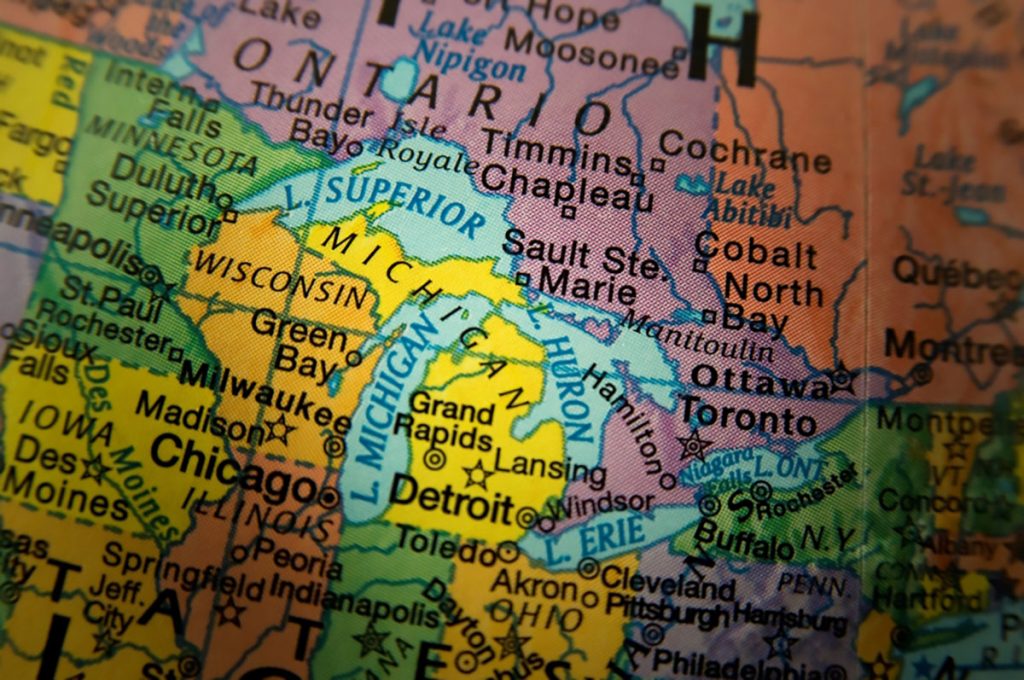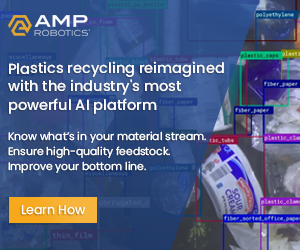
Michigan awarded nearly $5 million in grants to support recycling throughout the state. | RHIMAGE / Shutterstock
Public and private partners will spend millions of dollars to improve the recycling system in Michigan as part of a newly announced initiative.
Leaders on April 19 announced the launch of NextCycle Michigan, which has a mission to “spark” the recycling economy in the state. They also announced that, in conjunction with kicking off the new program, the state’s environment agency will contribute $4.9 million in grant funding to recipients supporting recycling throughout the state.
The NextCycle program will operate a competitive grant funding process. Applicants with recycling project proposals will compete by pitching their ideas, and awarded teams will receive financial support, resources and technical support. Proposals will be reviewed by a technical advisory committee and a funding review board.
Applicants can come from a variety of sectors, including the business community, government agencies, trade associations, universities and others.
The pool of grant funds for the initiative is supported through state funding – such as the Renew Michigan grant money – as well as private and nonprofit investments.
The program will support recycling and recovery initiatives in six categories: organics waste reduction, recovery, processing and end markets; recycled material use in road construction; recycling supply chain improvements involving collection, logistics and end markets; processing technology advancements or recycled product designs; developing public-private partnerships or other collaborative efforts; and supporting small-scale innovations in collection, processing and materials use.
During an April 19 press conference, NextCycle leaders said Michigan is among the first states to introduce this kind of partnership, leveraging state dollars with private investment.
One key impetus for the initiative is Michigan’s lagging recycling rate, which is currently at about 18.5%, said Liz Browne, materials management division director for Michigan’s Department of Environment, Great Lakes and Energy (EGLE).
Follows other funding efforts
This is the latest push to bolster the state’s recycling system, coming on the heels of a beverage industry investment into a materials recovery facility (MRF) renovation project in Ann Arbor, a $2 million outreach effort in early 2020, and a $2.8 million round of grant funding from EGLE in mid-2019. It also comes as recycling leaders across the state are working in a coordinated manner in data analysis, outreach, market development and more.
During the press event, Liesl Clark, director of EGLE, said the NextCycle program will “fund shovel-ready projects, state-of-the-art technology installation, and innovation grants.” Clark described recent actions as “the largest largest push in state history to promote recycling activities.”
The $4.9 million in recent EGLE grants included $600,000 to the Delta Solid Waste Management Authority for recycling facility equipment, $250,000 to MRF operator Emterra Environmental for technology to produce a cleaner glass product, $250,000 to Great Lakes Tissue for technology allowing the company to recycle more types of containers into paper products, $170,000 for robotic sorting equipment to improve drop-off recycling at Michigan State University, $150,000 to Emmet County to expand the local food scrap collection program, and others.
Besides issuing grants to specific projects, the NextCycle initiative recognizes a list of “partner” organizations, a group that includes “anyone willing to make an investment in Michigan to support” some aspect of the recycling industry.
This group, which includes 38 organizations spanning end users, trade groups, recycling operators, government agencies and others, has a combined total of $97 million in recycling-related investments. One prominent project from this group comes from Emterra, which recently opened a $9 million MRF in Lansing.
A version of this story appeared in Resource Recycling on April 27.
More stories about industry groups
- Colorado approval signals path forward for PRO choice
- Brand owners lead initiative for scalable film, flex recycling
- APR, ReMA update bale specs for PE rigids, film



